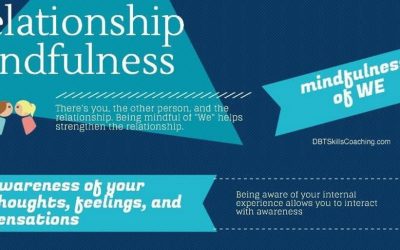Radical acceptance is the acceptance that reality is what it is. It doesn’t mean you don’t work to change it. Acceptance doesn’t mean approval. Acceptance is acknowledging or regaining facts that are true; conceding the facts.
Story to Illustrate Radical Acceptance
Imagine that a man is in prison with a life sentence. He is innocent, but has no appeals left or money or resources for a lawyer and cannot get the Innocence Project to take his case. Accepting that prison is his home for now is critical. Without that acceptance, he might not adapt to prison or learn the skills necessary to survive. Fighting the system can lead to more punishment. Giving in, withdrawing, can be just as problematic. Acceptance is crucial for his survival. And that doesn’t mean he doesn’t keep working to prove his innocence: he is accepting that he is in prison now.
What has to be Accepted
1. Reality is what it is
Accept the facts of reality and the present. In some situations, you can change the future but accepting the present is necessary to change the future.
2. Everyone’s future has limitations
Limitations on our futures are caused by factors that have occurred in our lives, in the lives of others, and in our environment. If we do not change the causes that limit our present and future, then we cannot change reality.
3. Life can be worth living even when it contains pain.
The man in prison cannot solve the problem right now. He can be miserable, distraught, upset. He could cry everyday. Or he could accept it and figure out a way to build a life worth living inside a prison, while still doing all he can to gain his freedom. To go from unendurable agony to durable pain, he’ll have to accept that he can build a life. If he doesn’t accept that, he won’t build a life.
Why Accept Reality
1. Rejecting or Denying Reality Doesn’t Change Reality
Refusal to accept that drinking and driving is dangerous can lead to a DUI or worse. Refusing to accept a partner’s habits that you dislike can lead to high conflict and ultimately a lost relationship. Refusing to accept that children have a different religious belief can lead to losing the relationship with your children.
2. Changing Reality Requires First Accepting Reality
When you accept what is, then you are free to look at what you can change. If you don’t accept what is, you cannot change it. Your energy and thoughts are about fighting against what is.
3. Pain Cannot Be Avoided
Life includes painful situations that you don’t like and don’t want. Pain serves a purpose in that it is nature’s way of signaling that something is wrong. For example, the pain of grief signals people to reach out and stay in touch with loved ones.
4. Rejecting Reality Turns Pain into Suffering
When there is pain plus the nonacceptance of pain, there is suffering. Suffering and agony are optional though pain is not.
5. Accepting Reality Can Bring Freedom
The drive to “stop pain no matter what is” the opposite of freedom. Much of life involves managing painful situations that cannot be solved immediately.
What Radical Acceptance is NOT
1. It is not approval
2. It is not compassion or love
3. It is not passivity, giving up or giving in
4. It is not against change
What is happening in your reality now that you need to accept?
How is nonacceptance causing you suffering? What are the signs you are not accepting this situation?
Live a skill-full life





0 Comments